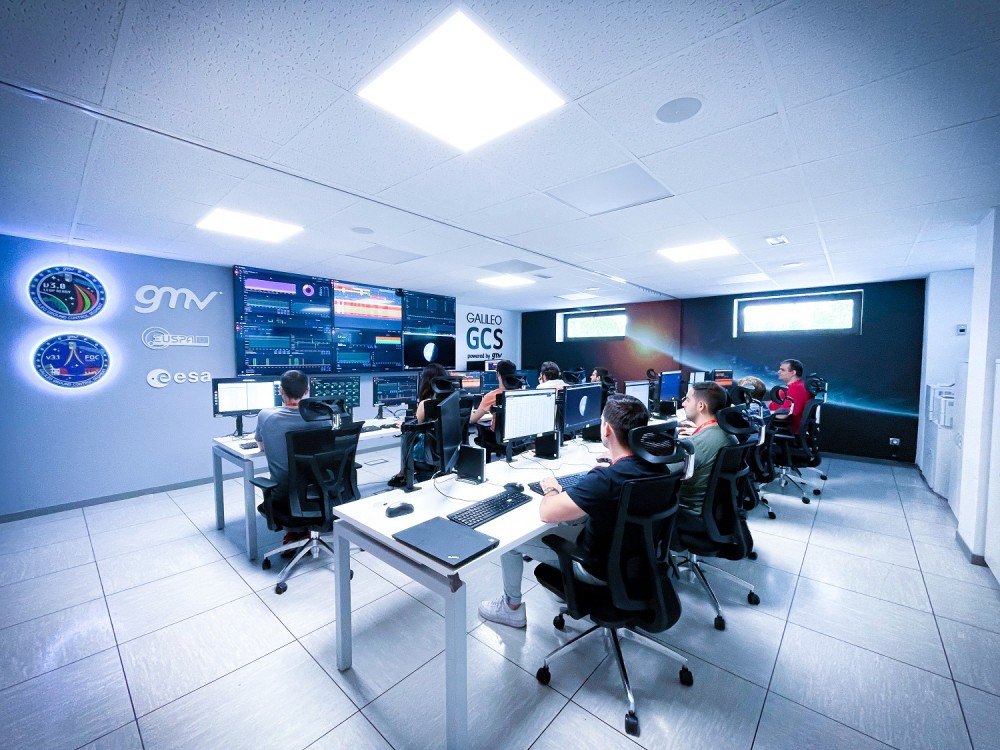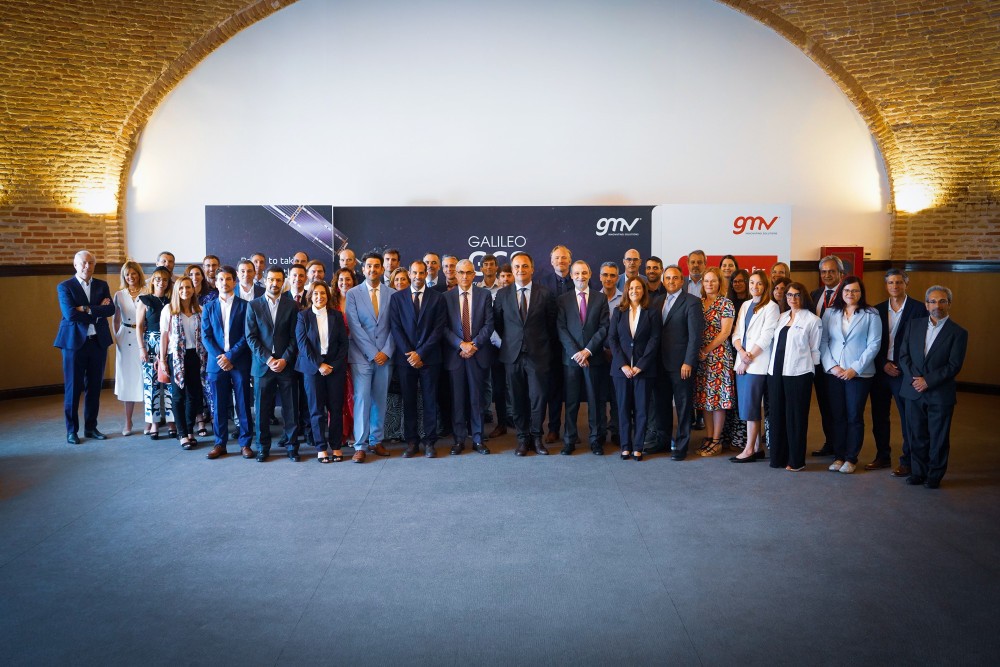The G2IOVGCS project officially kicks off

On June 22, GMV chose the Viñuelas Castle, located in the municipality of Madrid, in the area known as Soto de Viñuelas, near GMV's head offices in Tres Cantos, as the venue for the kick-off meeting (KOM) of the project to develop the ground segment for the in-orbit control and validation (IOV) of the second generation of Galileo (G2G).
The primary objectives of the European Galileo second-generation satellite navigation system are to introduce new state-of-the-art services and technologies; improve existing services and tech; increase the accuracy and robustness of the system; strengthen security; and reduce the system’s maintenance costs. These efforts seek to consolidate and enhance Galileo’s position across the globe. Galileo currently serves more than four billion users worldwide, delivering global positioning, navigation, and clock synchronization services with a positioning accuracy of up to 20 cm.
The new contract signed between GMV and ESA is worth over €200 million. This includes the contracting of core G2G activities for a value of around €155 million. These activities will be carried out over a period of 42 months, from mid-2023 until the end of 2026, with options for extension until 2028.
The event, which was attended by a sizable representation of GMV professionals involved in the Galileo project at a general level and representatives from other corporate departments and sectors, was also attended by representatives of the European Space Agency (ESA), the European Union Space Programme Agency (EUSPA), and subcontracting firms.
The round of talks was opened by GMV's general manager, Jesús B. Serrano who, during his talk, stressed GMV's journey from its founding in 1984 to its current position of prominence in today's space industry, achieved thanks to GMV's DNA, made up, he said, of “ethical values, a spirit of commitment, hard work, technical leadership, innovation, and responsiveness,” among other factors. With over 3,000 professionals and offices in 12 countries GMV has fulfilled the dream that its founder, Dr. Juan José Martínez García, had when he set up the company almost 40 years ago, remarked Serrano. “Four years after the first kick-off (for the maintenance and development of Galileo's Ground Control Segment), we continue to focus on Galileo's success.” “At GMV, challenges are our passion,” he concluded.
After GMV's CEO, ESA's head of Galileo's second generation, Miguel Manteiga, took the floor. During his address, Manteiga reviewed the past and explained the future of the Galileo program between 2024 and 2042 to the audience, also highlighting GMV's important role in the industry and the program’s second generation.
GMV's general manager of Satellite Navigation Systems, Miguel Romay, then used his remarks to thank both EUSPA and ESA and the European Commission for their ongoing confidence in GMV, assuring them that the company “will give its best to ensure the success of the Galileo program.” Romay emphasized that the contract for Galileo's GCS signed in 2018 represented one of the biggest milestones in the company’s history. “It was a difficult challenge and one that we are deeply proud of,” he stressed. Romay also emphasized the decisive role of satellite navigation systems in day-to-day operations. “Systems like Galileo are essential. Satellite navigation is certainly a must for every city and every person, so it is our duty to work to ensure that Galileo continues to progress and improve its services for end users,” he stated. GMV’s general manager of Satellite Navigation Systems did not want to end his speech without looking ahead to the future with optimism: “We are going through one of the most exciting times for satellite navigation,” he concluded.
ESA's head of Galileo's ground segment, Sonia Toribio, continued the discussion and used her own talk to reflect on the progress of Galileo's GCS and GMV's entry into the program in 2018, expressing her deep “personal and professional” satisfaction at having placed her trust in GMV's potential. As Toribio said, “everyone speaks well of GMV as a company and as a team, so I am certain you will take this second phase to a resounding success.”
Also speaking at the event was EUSPA’s GCS project manager Antonio Pineda, who, in addition to congratulating GMV on this new prime success, stressed the importance of the G2G IOV GCS for the European Union Agency for the Space Program and explained EUSPA’s role in the activities carried out in the Galileo program.
The last speaker was the director of GMV's Ground Control Segment of Navigation Systems business unit, Víctor Pozo, who took the opportunity to highlight GMV's track record since its foundation, stressing the value of people. Pozo highlighted the dream achieved by the company after the first contract to develop Galileo's GCS and how the group's professionals showed their enthusiasm for “taking GMV to the next level.” In his talk, he described how the pandemic caused by COVID-19 posed a huge additional difficulty for the team and expressed his pride in GMV's professionals and their high level of involvement in the project.
The morning ended with the signing of the contract between the European Space Agency and GMV and group photos. After lunch, the project kickoff day continued with technical presentations by the GMV teams involved and subcontractors.
